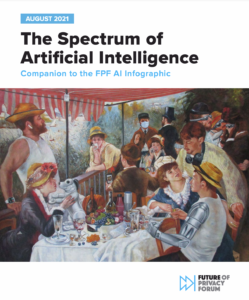Industry Leaders Discuss Benefits of Self-Regulation for OBA
On Tuesday afternoon, the Information Technology Innovation Foundation (ITIF) unveiled a new paper titled, “Benefits and Limitations of Self-Regulation for Online Behavioral Advertising” at a Microsoft event on self-regulation in the online behavioral advertising (OBA) environment. In the paper, author and ITIF senior analyst Daniel Castro explains, “[S]elf-regulation benefits the economy by creating a more flexible regulatory environment than is typically found with state regulation. Industry experts review current activities, identify best practices, and develop these into industry guidelines. These guidelines continue to evolve over time in response to feedback from industry leaders.”
Panelists discussed key issues about the current self-regulatory framework, including the multi-stakeholder environment, and issues surrounding the upcoming W3C Do-Not-Track standards. Rachel N. Thomas, Vice President of government affairs for the Direct Marketing Association, noted that she is already “seeing a shift in the way folks [consumers] are talking,” in terms of consumers having an easier time identifying what they are afraid of, while also understanding the benefits of OBA. Morgan Reed, Executive Director of the Association for Competitive Technology, pointed out that the 600,000 jobs created by the mobile apps economy is evidence that self-regulation is working.
Though most panelists expressed the view that self-regulation is more adept to change in contrast with government regulations, they also acknowledged that further FTC enforcement against the “bad actors” is a good thing. “People sometimes forget that we are not a membership driven program. We are an industry-wide program, which means that your bad apples are under my purview. And if you don’t abide by the rules, we aren’t afraid to refer you to the FTC,” said Genie Barton, Vice President and Director of the OBA program at the Council of Better Business Bureau.
-Lia Sheena



